-
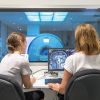 +15 +1
+15 +1Can a ‘Fingerprint’ of Your Brain Help Predict Disorders?
When she gets ready for bed, Ava Manning doesn’t bother wearing an eye mask or earplugs, but she takes five minutes to strap on her electroencephalography (EEG) headband. The accessory is made of plush foam and adorned with six electrodes that press comfortably against her temples, allowing Manning to peacefully sleep while the device monitors, analyzes and acts on her brain waves overnight.
-
 +13 +1
+13 +1Poor sleep can impact brain health
Poor sleep in middle age can have a negative impact on brain health, according to a study by researchers at The Australian National University. The study looked at the sleep habits of over 29,000 people aged between 37 and 73 and could provide the basis for helping to combat major diseases like dementia.
-
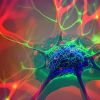 +15 +1
+15 +1Breakthrough study discovers that psychedelics breach our neurons
Researchers have discovered that psychedelics can activate 5-HT2A receptors inside of cortical neurons, a possible cause of their therapeutic effects.
-
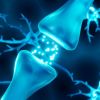 +13 +1
+13 +1Psychedelics may treat depression by invading brain cells
Psychedelic drugs have shown promise as therapies for hard-to-treat depression. Now, scientists have a potential explanation for why: The drugs may be able to slip through the outer membranes of brain cells and essentially flip switches inside the cells that other depression treatments can't.
-
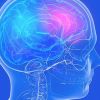 +18 +1
+18 +1How Bacteria Invade the Brain
Research shows that bacteria hijack crosstalk between nerve and immune cells to cause meningitis
-
 +22 +1
+22 +1A neuroscientist shares the 4 ‘highly coveted’ skills that set introverts apart: ‘Their brains work differently’
Being the most talkative person in the room may be a good way to get people’s attention, but it doesn’t necessarily mean you have the best ideas. As a neuroscientist, I’ve worked with large companies like Google and Deloitte on how to attract and retain top talent, and I’ve found that employers tend to favor extroverts.
-
 +17 +1
+17 +1Goodbye coffee, hello brain stimulation? People are zapping their brains at home to clear brain fog
At-home brain stimulation is flourishing among a group of enthusiasts, who say it gives them a mental edge. The science behind why it may work is still in the early stages.
-
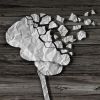 +3 +1
+3 +1Concussions may be associated with worse brain function at later age: study
Experiencing three or more traumatic brain injuries was linked with lower cognitive function later in life.
-
 +24 +1
+24 +1What causes your brain to procrastinate and how to face it
A study shows that two actions may help in tackling procrastination — setting reminders and envisioning your future self.
-
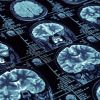 +15 +1
+15 +1Brain imaging study links socioeconomic disparities in children's sleep to reduced cortical thickness
A new study has found that children from disadvantaged families tend to sleep less, and that this lack of sleep is linked to reduced cortical thickness in areas related to language, self-control, and movement. Cortical thickness refers to the measurement of the thickness of the cerebral cortex, the outermost layer of the brain. It is often used as an indicator of brain development and maturation, and can be measured using imaging techniques such as magnetic resonance imaging (MRI).
-
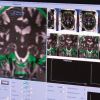 +12 +1
+12 +1A sound you can't hear but may one day change your life
Neurosurgeons are using focused ultrasound, a noninvasive brain surgery, to treat essential tremor and other conditions. Here's how it works.
-
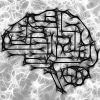 +13 +1
+13 +1A Link Between Schizophrenia and Vascular Alterations in the Brain
A new study uncovers a link between astrocytes derived from patients with schizophrenia and the formation of narrower blood vessels in the brain. Findings suggest the astrocytes from those with schizophrenia promote less vascularization.
-
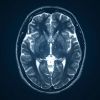 +4 +1
+4 +1Inside the mind of a 6-year-old shooter
Police say a 6-year-old in Virginia shot his elementary-school teacher intentionally. But scientists say that's not how kids' brains are wired.
-
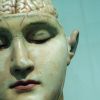 +17 +1
+17 +1Programming and its positive impacts on brain functioning
Learning to program can accelerate knowledge acquisition by developing cognitive skills. As a result, we remember the information much better, and the brain subjected to constant exercise is much healthier.
-
 +16 +1
+16 +1Will This Device Protect Athletes’ Brains, or Only Make Them Think It Does?
More and more pro and college athletes are trying on the Q-Collar as they search for something, anything, that might keep their brains safe. But does it work?
-
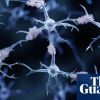 +27 +1
+27 +1Scientists develop blood test for Alzheimer’s disease
Scientists say test could replace a costly brain scan or painful lumbar puncture and enable earlier detection of disease
-
 +4 +1
+4 +1Some People Who Appear to Be in a Coma May Actually Be Conscious
Brain scans reveal that some people who can’t speak or move are aware of the world around them.
-
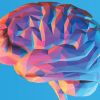 +20 +1
+20 +1Researchers explore the relationship between childhood trauma, gray matter, and social anhedonia
A new study published in Brain Imaging and Behavior searches for the potential relationship between childhood trauma, social anhedonia, and brain gray matter volume. The research found individuals with moderate to severe childhood trauma experienced higher levels of social anhedonia and exhibited differences in gray matter.
-
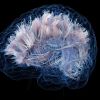 +19 +1
+19 +1New study finds alterations in the brain's white matter in children with depression
A 17-year neuroimaging study of persons diagnosed with depression as children found differences in white matter in the dorsal cingulum bundle region of the brain compared to persons without depression of similar age. The emergence of these differences was first detected in adolescence. The study was published in Depression and Anxiety.
-
 +16 +1
+16 +1Playing Competitive Video Games Helps the Brain & the Soul
Yes, “try-harding” in Mortal Kombat or Call of Duty will improve your mental functions and values in life. Even if you do not play video games, this post will show you how impactful video games, but even more specifically, competitive video games are to your well-being.
Submit a link
Start a discussion




















